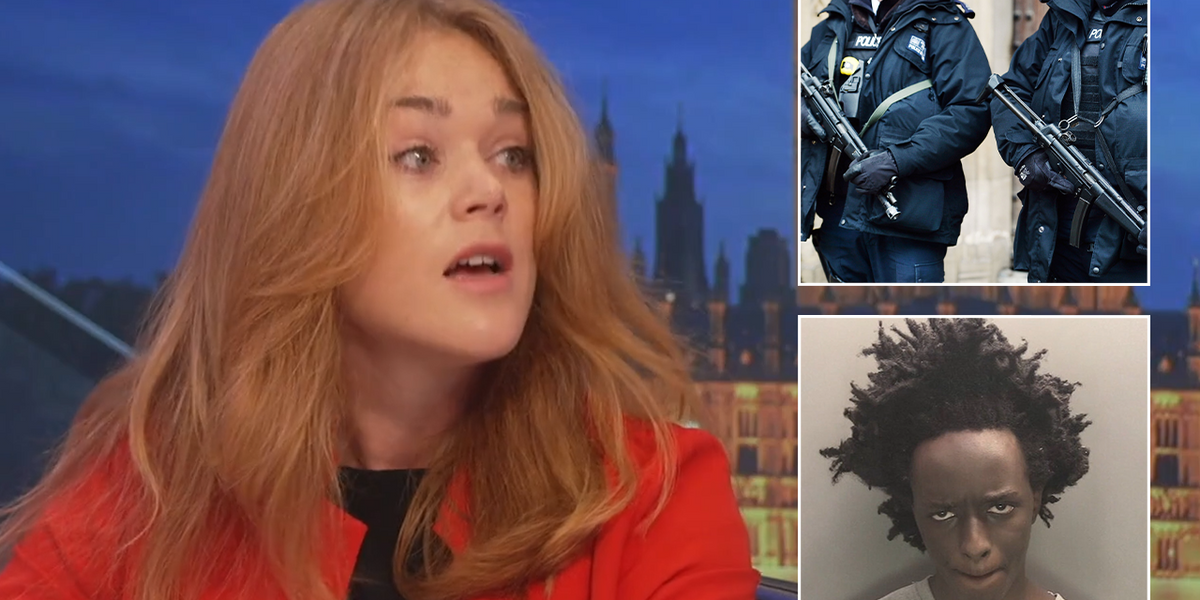Prevent’s failure to halt Axel Rudakubana in his tracks has been blamed on the group’s ‘tick-box’ culture by a former staffer.
Charlotte Littlewood, formerly a practitioner for the counter-terror programme which aims to stop individuals deemed ‘at risk’ of radicalisation, lifted the lid on its pen-pushing culture in a revealing GB News interview.
Rudakubana was referred three times to the government’s anti-extremism watchdog and had contact with police, the courts, the justice system and mental health services.
This all came before he pleaded guilty to murdering Alice da Silva Aguiar, nine, Bebe King, six, and Elsie Dot Stancombe, seven at a Taylor Swift-themed dance class in Southport last year.
Charlotte Littlewood said ‘incompetent’ counter-terror workers are to blame for Rudakubana failings
GB NEWS / PA
A public inquiry has been announced and Prime Minister Sir Keir Starmer has vowed to ensure no institution of the state will be able to deflect from their failure.
Speaking on GB News, Littlewood explained the process behind a referral and what happens next.
LATEST DEVELOPMENTS
Charlotte Littlewood spoke to Martin Daubney on GB News
GB NEWS
She told Martin Daubney: “Prevent cases come in as a risk, perhaps from the school. They’ve noticed that this child or young adult is engaging with a dangerous ideology or is becoming violent towards classmates.
“There’s a phone call. A Prevent practitioner or lead takes that and fills out a risk assessment, essentially. If they find that person to be capable of violence, holding an ideology and a potential terrorist threat, then it’s tick, tick, tick.
“It then goes to the channel panel, which is where the safeguarding police, a multifaceted channel different parts of the local authority sit and decide, ‘what do we provide for this individual?’”
Speaking about how Axel Rudakubana could slip through the net, she said: “Somebody had the form to fill in and didn’t fill it correctly.
“It’s something I found when I was in Prevent. We often had practitioners who had been brought in, maybe from other areas, maybe the charitable sector, and be moved in and they didn’t quite have the grasp of radicalisation and extremism.
“We really need to have the top people who really understand this threat in these positions. Sometimes that was about fear of having people who understood it, perhaps too well, being overzealous with referrals.
“I believe that this is incompetence.”
Rudakubana, 18, admitted all 16 charges at Liverpool Crown Court yesterday, including the murders of three young girls at a Taylor Swift-themed dance class.
He also pleaded guilty to attempting to murder eight other children and two adults, possessing ricin and an Al-Qaeda training manual.
Rudakubana cannot receive a whole life order as he was 17 at the time of the attacks, with such sentences only considered for those aged 21 and over.
He will be sentenced at Liverpool Crown Court on Thursday.
GB News has approached Counter Terrorism Policing for comment.




